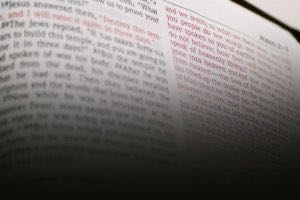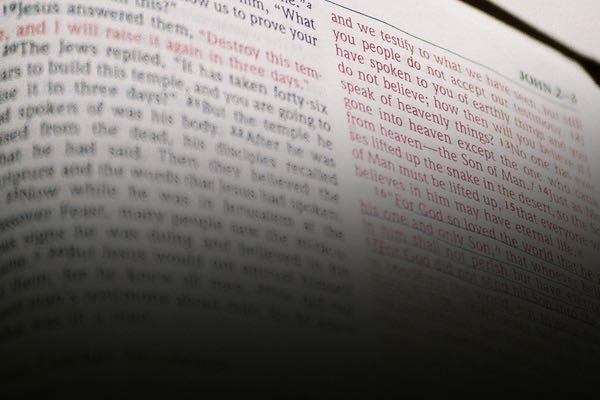
“I understand this objection; there are many places in the Gospels where scribes over the centuries made small changes, either intentionally or unintentionally, resulting in a different word or passage. These resulting variations can seem problematic, for sure. Some skeptics claim we can’t trust any of the New Testament because of the presence of these differences.
But let me offer some insight from how crime scenes are worked. I’ve never encountered to a crime scene that wasn’t messy. I wish every crime scene was an orderly collection of helpful evidence, but that’s seldom the case. Instead, crime scenes are filled with relevant evidence and unrelated artifacts. Some of these artifacts are simply items that were in the scene before the crime even started, and some are unrelated items deposited after the fact. Paramedics, for example, often rush to the scene to save the victim and make quite a mess. As a result, I often have blood smears, bandage packaging, medical supplies and more in my crime scene, all of which was caused by paramedics after the fact. . None of these have evidential value in determining what happened or in identifying the suspect; they’re unrelated artifacts.
Now imagine I’m the detective working a case in which someone you cared about was murdered. How would you feel if I walked in and I said, ‘You know, I’d like to help you, but there’s a bunch of artifacts in this scene. I’m sorry. I can’t do anything for you.’ I think you’d say, ‘Well, wait a minute, here. You’re being irresponsible and shirking your duty. You’re a detective! You’re supposed to separate the artifacts from the evidence so you can make your case.’ I think you’d be correct in making those statements.
Detectives do have a duty and we fulfill it all the time, even in difficult crime scenes. We employ a technique, a process, to separate the artifacts from the evidence. By using this process, we’re able to determine what has evidential value and what doesn’t. We’re able to return the crime scene to the condition it was in prior to the entry of late artifacts, and we’re able to separate unrelated elements from important evidence.
It turns out the textual critics do the same thing with the Gospels. They have a process in place that helps them identify variations and late entries. Better yet, they are able to compare the manuscripts to determine the most reasonable original ‘reading’ for each verse. Even the skeptic who says, ‘I see a variation,’ is employing this process, but incompletely. The same process that successfully identifies a variant can also be used to remove the artifact and reliably restore the document to its original condition, even if the ‘crime scene’ is messy.
Imagine if someone could take a picture of my crime scene every five minutes from the time of the crime to the time of my arrival at the scene. Once I got there, I could compare all these images to see what changed in my scene over time. By comparing these multiple images, I would know what entered late and I could restore the scene reliably to its original condition. The more images I have, the easier this process would be. We do something very similar when returning the New Testament to its original condition. We compare the thousands of manuscripts we have to identify what entered late and restore the manuscript reliably to its original condition.” We compare thousands of gospel manuscripts to identify what entered late and restore the manuscript reliably to its original condition. Share on X
This brief answer was modified from my interview with Bobby Conway. To learn more and watch many other short answers to difficult questions, please visit the One-Minute Apologist website.

J. Warner Wallace is a Dateline featured Cold-Case Detective, Senior Fellow at the Colson Center for Christian Worldview, Adj. Professor of Christian Apologetics at Talbot School of Theology, Biola University, author of Cold-Case Christianity, God’s Crime Scene, and Forensic Faith, and creator of the Case Makers Academy for kids.
Subscribe to J. Warner’s Daily Email
J. Warner Wallace is a Dateline featured cold-case homicide detective, popular national speaker and best-selling author. He continues to consult on cold-case investigations while serving as a Senior Fellow at the Colson Center for Christian Worldview. He is also an Adj. Professor of Christian Apologetics at Talbot School of Theology, Biola University, and a faculty member at Summit Ministries. He holds a BA in Design (from CSULB), an MA in Architecture (from UCLA), and an MA in Theological Studies (from Gateway Seminary).
































